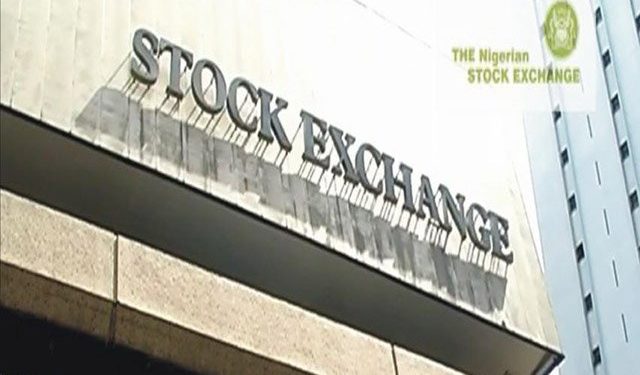Transactions at the Nigerian stock market have dropped by 41.3 per cent to N937.8 billion in the past six months as investors rued macroeconomic uncertainties amid political risks and increased insecurity.
Official reports by the Nigerian Stock Exchange (NSE) tracked by The Nation at the weekend showed that total transactions at the equities market stood at N937.79 billion during the past six months, a decline of 41.3 per cent or N659 billion from N1.597 trillion recorded in the corresponding period of 2018. The performance in first half 2019 however represented a marginal increase of 0.27 per cent or N2.53 billion on N935.26 billion recorded in first half of 2017.
The reports showed the market appeared to follow the political trend with headline performances during the key political months. Transactions built up in February, which was earlier scheduled for the general elections and slowed down in the next month following the postponement of the general elections and rescheduling to March.
Activities also improved in April following the conduct of the general elections and rose further in May as investors looked toward the inauguration of the new government. With delay in key government decisions and appointments, turnover dropped to its third lowest level this year in June.
Most analysts agreed that the stock market performance was weakened by macroeconomic uncertainties due to the emerging political situation.
Managing Director, Network Capital, Mr Oluropo Dada, said political risk was a major factor during the first half as investors were nervous and uncertain about the outcomes of the elections.
According to him, investors took flight to money market instruments to stave away risks despite the underlying attractions of grossly undervalued shares.
“Early determination of the presidential election result at the tribunal and appointment of ministers will further create legitimacy for the government and give clearer direction to foreign investors who are major drivers of the market,” Dada said.
Managing Director, APT Securities and Funds Limited, Mallam Kasimu Garba Kurfi said early release of the ministers’ list could clear the macroeconomic uncertainties about who will lead the economic agenda of the government.
Total transactions stood at N122.08 billion in January 2019, rose to N188.08 billion in February 2019, dropped to its lowest turnover of N110.11 billion in March 2019, picked up to N148.91 billion in April 2019, rose further to its highest performance of N221.13 billion in May 2019 and declined to N147.48 billion in June 2019.
The low appetite for Nigerian equities had also led to significant depreciation in share prices at the stock market.
The Nation had earlier reported that investors in Nigerian equities suffered average depreciation of 4.66 per cent in their portfolios during the first half of this year, equivalent to net loss of N546.2 billion during the six-month period.
Benchmark index for the Nigerian equities market had shown that Nigerian equities traded mostly on the negative during the period, declining in four out of the six months. The market also closed both the first and second quarters on the downside.
The All Share Index (ASI) – the main value-based index that tracks share prices at the Nigerian Stock Exchange (NSE), closed June 2019 at 29,966.87 points, indicating average decline of 3.55 per cent, 3.46 per cent and 4.66 per cent for the month of June, the second quarter and half-year period respectively.
The ASI had opened 2019 at 31,430.50 points, 17.81 per cent down from its 2018’s opening index of 38,243.19 points. It had however rallied a world-leading gain of 42.30 per cent in 2017.










